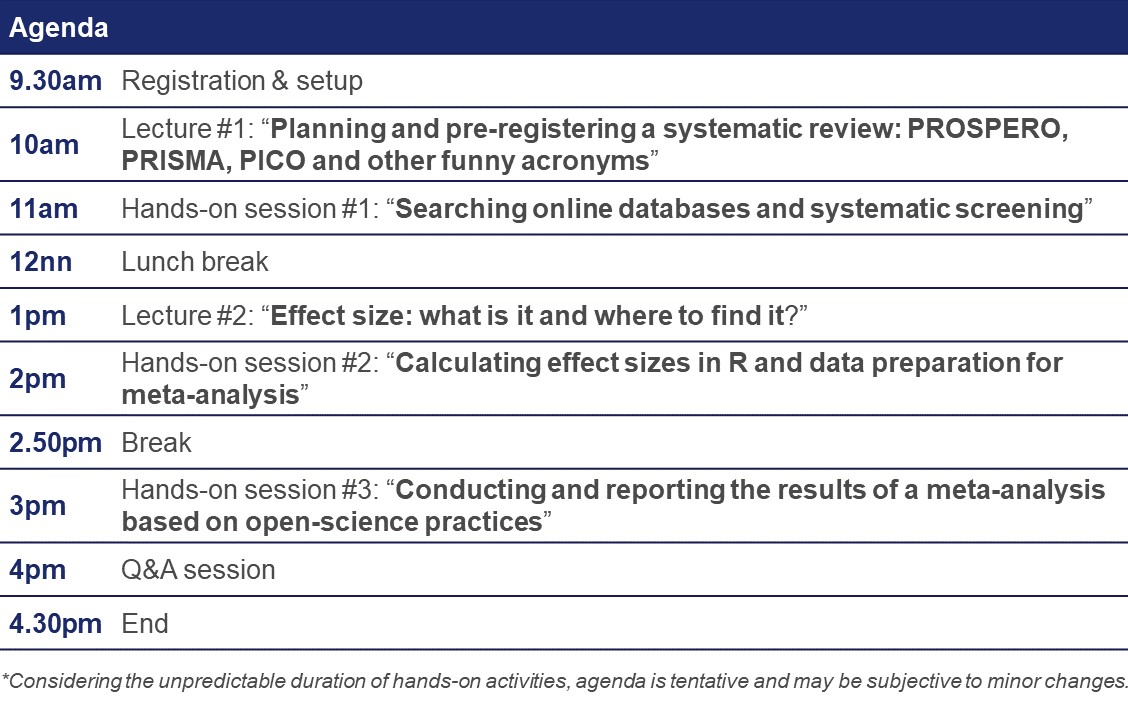
November 4, 2022, by Lisa Chin
[Registration is now open] Conducting systematic reviews and meta-analyses: an introduction
Conducting systematic reviews and meta-analyses: an introduction
Thursday 8 December 2022
9.30am – 4.30pm
B1-A24, Cognitive Science Lab (CSL), School of Psychology
Attendees: UNM postgraduate students (PhD or Master level)
Fee: Free to attend, max 30 people
Registration: Required (first-come-first-served) – click on the button below
Register now
Materials: None required, attendees will use the computers in the CSL lab but they are welcome to bring their own laptop.
Refreshment: Lunch is provided
Summary of the workshop
Systematic review is a research method aimed at retrieving and summarising all relevant literature on a certain topic via a methodical and standardised procedure. Systematic reviews are sometimes accompanied by a meta-analysis, which is a statistical analytic method aimed at synthesizing data from several studies into a single quantitative estimate.
Interest in conducting systematic reviews and meta-analyses has recently increased across academic disciplines, considering they are valid and strong methodologies to inform decision making by healthcare professionals and policy makers, and that they overcome biases and limitations of single empirical studies or randomized controlled trials (e.g., small sample size and methodological biases).
Being able to conduct systematic reviews and meta-analyses is a research skill that is highly valuable and expendable on the academic job market. In this introductory workshop, Dr Alessio Bellato, Assistant Professor at the School of Psychology will teach post-graduates about the main differences between a systematic review and a meta-analysis, and the main steps for these to be conducted and reported. Moreover, attendees will work on a real dataset and will be guided and supervised in conducting a meta-analysis in R.
Learning outcomes
By the end of the workshop, attendees will be able to:
-
-
Understand the main steps for conducting a systematic review and meta-analysis according to the PRISMA guidelines and based on open-science practice
-
Define different types of effect sizes (Hedge’s g, odds-ratio, etc.) and describe the steps for calculating effect sizes based on raw data
-
Conduct a meta-analysis in R, define sources of bias in systematic reviews and meta-analysis, and describe and interpret the results of a meta-analysis
-
For more information, please contact graduateschool@nottingham.edu.my.
-
Post a comment

